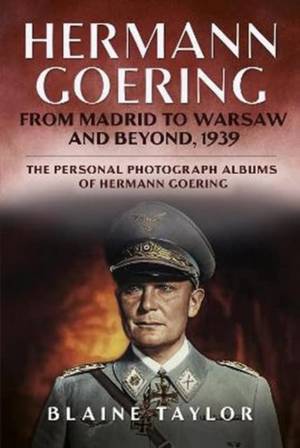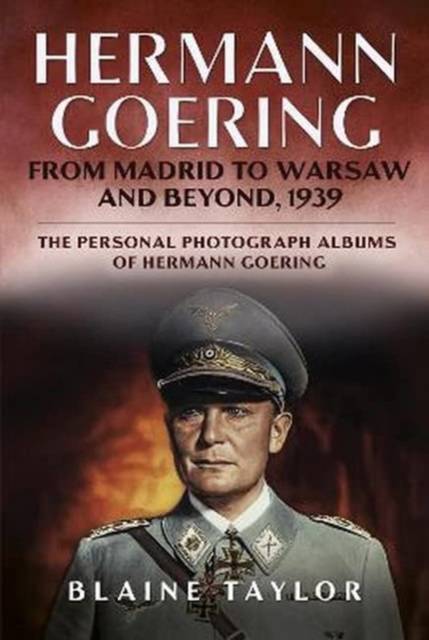
- Afhalen na 1 uur in een winkel met voorraad
- Gratis thuislevering in België vanaf € 30
- Ruim aanbod met 7 miljoen producten
- Afhalen na 1 uur in een winkel met voorraad
- Gratis thuislevering in België vanaf € 30
- Ruim aanbod met 7 miljoen producten
Zoeken
Omschrijving
This work features a vast array of personal and official photographs that show Goering the politician, the diplomat, the legendary aviator, the field marshal, the glutton, the entertainer and the family man at the summit of his power
1939 was a glorious year for Hermann Goering. He spent it entertaining dignitaries visiting the Third Reich, attending galas, going on official visits, giving rousing speeches at factories and military parades, hunting on his estates and indulging in his love of fine art, rich cuisine and sumptuous clothes and jewels. Ever vain, pompous and ambitious, in 1939 he attained the summit of his power and popularity when Hitler, speaking to a packed Reich Chancellery in September, named him his successor.
Goering's meteoric rise was inseparable from that of his Luftwaffe. As commander-in-chief, he bathed in the glory of the Condor Legion's victory in Spain in April and the Luftwaffe's decisive role in the Blitzkrieg of Poland in September. Out of these encounters in 1939, the Luftwaffe emerged as the world's most feared and respected air force. But beyond the trappings of victory were deep-rooted weaknesses: Goering feared their exposure during a longer conflict against a more powerful enemy, and was therefore desperate to avoid a confrontation with the western powers. At the same time, however, he was apparently powerless to divert from it.
1939 was a glorious year for Hermann Goering. He spent it entertaining dignitaries visiting the Third Reich, attending galas, going on official visits, giving rousing speeches at factories and military parades, hunting on his estates and indulging in his love of fine art, rich cuisine and sumptuous clothes and jewels. Ever vain, pompous and ambitious, in 1939 he attained the summit of his power and popularity when Hitler, speaking to a packed Reich Chancellery in September, named him his successor.
Goering's meteoric rise was inseparable from that of his Luftwaffe. As commander-in-chief, he bathed in the glory of the Condor Legion's victory in Spain in April and the Luftwaffe's decisive role in the Blitzkrieg of Poland in September. Out of these encounters in 1939, the Luftwaffe emerged as the world's most feared and respected air force. But beyond the trappings of victory were deep-rooted weaknesses: Goering feared their exposure during a longer conflict against a more powerful enemy, and was therefore desperate to avoid a confrontation with the western powers. At the same time, however, he was apparently powerless to divert from it.
Specificaties
Betrokkenen
- Auteur(s):
- Uitgeverij:
Inhoud
- Aantal bladzijden:
- 256
- Taal:
- Engels
- Reeks:
Eigenschappen
- Productcode (EAN):
- 9781625451149
- Verschijningsdatum:
- 10/08/2023
- Uitvoering:
- Hardcover
- Formaat:
- Genaaid
- Afmetingen:
- 173 mm x 249 mm
- Gewicht:
- 798 g

Alleen bij Standaard Boekhandel
+ 83 punten op je klantenkaart van Standaard Boekhandel
Beoordelingen
We publiceren alleen reviews die voldoen aan de voorwaarden voor reviews. Bekijk onze voorwaarden voor reviews.











